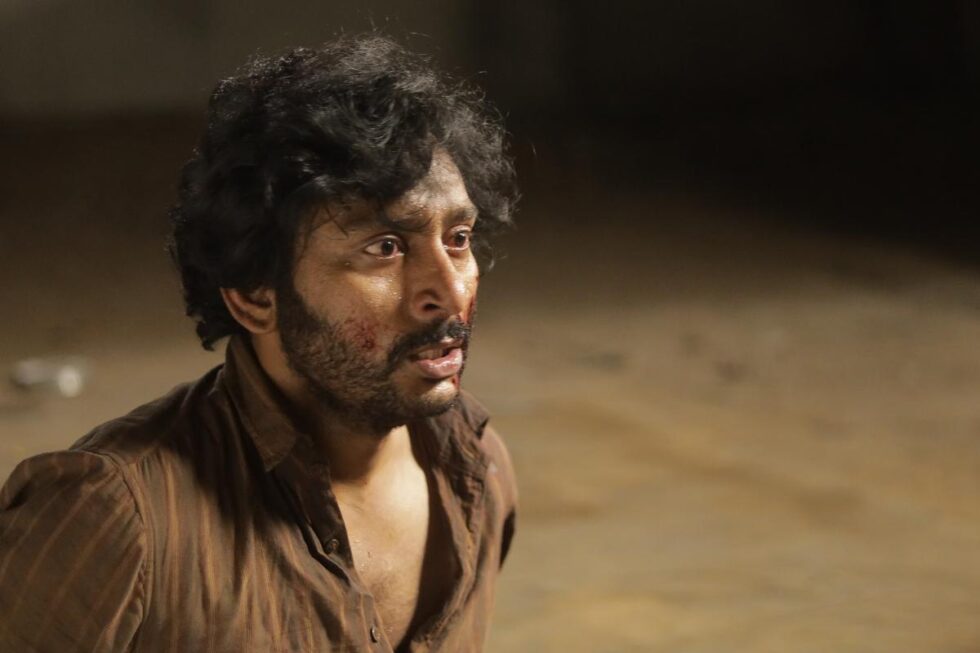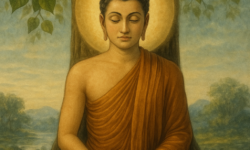
Sorgavaasal is a 2024 Indian Tamil-language prison drama directed by Siddharth, featuring RJ Balaji and Selvaraghavan in lead roles, supported by a strong ensemble cast including Karunas, Sharaf U Dheen, Samuel Abiola Robinson, Saniya Iyappan, Natty Subramaniam, and Balaji Sakthivel. The film is inspired by the 1999 Madras Central Prison riots and presents a disturbing yet powerful commentary on the justice system and its entanglement with two different worlds the civilian world and the “jalian” world (the inner world of prisons). It explores how these two spaces affect the life of a common man, especially those from marginalised communities.
The narrative begins in reverse, as Tamil Nadu Minister Mayilvaganam establishes an inquiry commission under retired Justice Ismail to investigate the riots. Justice Ismail calls in Kattabomman, a prison employee, to reveal the truth. Kattabomman recounts the story of Sega, a notorious gangster who controlled the prison’s internal society even while behind bars. However, Sega undergoes a transformation after meeting an African prisoner named Kendrick.
Kendrick, deeply influenced by the teachings of Jesus, shares messages of love and peace with fellow inmates. Under Kendrick’s influence, Sega had converted his religion and became a Christian, leaving behind his violent ways and illegal operations. Kendrick’s sudden death due to police torture in jail raises questions of racial discrimination and religious bias. Though the film doesn’t state it openly, it’s clear that Kendrick was targeted because of his relationship with Sega. However, he was ultimately victimised by the system because of his devotion to the Bible.
Sega, deeply affected by Kendrick’s death, says, “I don’t know whether Jesus exists or not, but for me, you (Kendrick) are my Jesus.” Sega converts to Christianity and begins promoting peace among the inmates. His transformation, however, turns him into a threat for corrupt politicians he once served. A conspiracy is hatched, and Sega is murdered in jail. His death becomes the spark for the prison riots, during which several prisoners and police personnel are killed. The film poses a haunting question: Who was truly responsible for the riots?
Another tragic storyline in the film is that of Parthi, a common man falsely accused of murdering a former IAS officer, Shanmugam. Parthi, who runs a small roadside eatery with his mother and dreams of marrying his fiancée Revathy, finds himself ensnared in the corrupt system. Though innocent, Parthi ends up murdering the jail’s SP, a brutal officer who abuses his power. Once he says that if you tell people of hell that there is a key of heaven, they will find it any cost, not because they want enter in heaven, because they want to escape hell, if someone finds that key, he will not open the door he will tear them down. His story raises serious questions: Are prisons meant to reform, or do they push individuals further into crime? Are prisoners not human beings deserving of basic dignity, including food, clean water, and medical care?
Although the law mandates standards for how many prisoners can live in a barrack, the film shows the horrific living conditions inside: inmates packed like animals without space to sleep. One particularly disturbing subplot involves a third-gender inmate, who is sexually exploited by three MLAs inside the jail. This reveals the urgent need for separate facilities for transgender prisoners to ensure their dignity and safety.
As Kendrick was killed due to his race and religion, Dalit inmates in Indian jails continue to suffer atrocities — both from upper-caste inmates and from the police. This isn’t just fiction; it reflects real experiences. I say this from my personal journey, having spent several months in jail. There must be proper representation of Dalits among jail authorities, especially among police officers responsible for prisoner welfare. Movie leaves a riddle for public in the word of Kattabomman, who say that, “there are only two paths in life of common man- you can either be on your knees in heaven or you can be the king in hell. Which path are you going to take? the choice is yours.
The movie forces us to confront the dark underbelly of our justice system. It questions the very purpose of imprisonment and urges us to think about reforms, dignity, and representation — especially for the most marginalised among us.
Written by: Dr. Krishan Kumar
Political Sociologist and expert on caste issues in Haryana, Assistant Professor of Political Science, Lovely Professional University, Punjab
Email: Krishankumar1794@gmail.com








